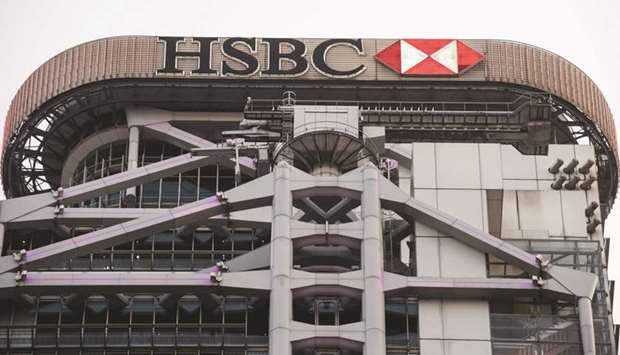HSBC Holdings Plc’s decision to scrap dividends has created an uproar among retail investors in Hong Kong who have banded together to push for an extraordinary general meeting to reverse the move.
Organising on Facebook and enlisting a local asset manager to lead the effort, investors are pressuring the bank to restore payouts that have been an important reason to own HSBC shares in the city.
While its stock price has lagged the Hang Seng Index by more than 600 percentage points since 1986, the total return has been more than double the benchmark’s once dividends are included, according to data compiled by Bloomberg.
The challenge from retail investors emphasises the difficult spot chief executive Noel Quinn finds himself in just weeks after being named to the top job. Though headquartered in London, HSBC draws about half its revenue from Asia and has outlined $4.5bn in cost reductions at underperforming units in the US and Europe. It cancelled dividends under pressure from the UK regulator, something lenders in Hong Kong and mainland China have been free of even as they’re called on to cushion the fallout from the coronavirus.
“This decision is clearly against the management’s previous promise to pay dividends and a departure from its usual dividend policy,” the group said in a statement handed out in Hong Kong yesterday. “This also disappoints the expectation of shareholders and represents an affront to the normal operations of the stock market.”
HSBC’s shares have been battered by the dividend move, and are down 36% this year in Hong Kong.
The investor group, which calls itself the HSBC Shareholders Alliance, said it has been in contact with more than 3,000 owners, representing about 2% of the outstanding shares. It urged others to join in the effort to clear the 5% hurdle to call a meeting.
The alliance wants the bank to issue a scrip dividend to cover the lost payout from 2019 and demanded a suspension of management’s remuneration for at least a year. In a letter to Hong Kong investors on Friday, HSBC’s Quinn said “we profoundly regret the impact this will have on you, your families and your businesses.”
“The board will review our stance on dividends once the economic impact of the pandemic is better understood,” he said. Europe’s biggest lender, created 155 years ago as a merchant bank in Hong Kong, warned last month that it expects to book higher credit losses because of the pandemic and estimated in February that the virus would result in losses of $200mn to $500mn in the first quarter alone.
David Webb, a long-time Hong Kong investor and corporate governance activist, said the group stands little chance in reversing the dividend decision because the board was acting within its legal powers, also calling a scrip dividend “a pointless exercise.” “Also, remember that the retained profits will still be distributable as dividends or for share buybacks in the future,” he said in a comment on the group’s Facebook page.
The controversy has also rekindled a debate over HSBC’s headquarters. Hong Kong’s government, which has made no move to limit dividends of the banks it regulates, said it would welcome HSBC returning its headquarters to the city, according to a report in the South China Morning Post. “The regulations and business opportunities in Hong Kong are very good,” Secretary for Financial Services and the Treasury James Lau told the Hong Kong-based newspaper.
Hong Kong’s authorities understand that individual and institutional investors in the city are affected by the dividend halt, while HSBC has to comply with rules set by UK regulators, Lau said yesterday at a Legislative Council meeting. The city’s financial regulators are in contact with their overseas counterparts, he said, without giving more details.
The Bank of England declined to comment. The lender, which moved its headquarters to London from Hong Kong in 1993, recommitted its plans to remain in the UK capital in 2016 after securing concessions on regulations and taxes. The bank deliberated for 10 months over whether to move its headquarters, deciding finally between Hong Kong and London.
One shareholder at yesterday’s press event for the retail investor group said the dividend halt would make it impossible for her to pay her annual insurance premiums. Identifying herself only as Ms Wong, she said the bank was lying to small shareholders and that she depended on the dividends for a living.
The bank has offered at least HK$30bn ($3.9bn) in credit relief to business customers in Hong Kong, easing borrowing terms to help companies battered by the coronavirus outbreak.

The HSBC Holdings headquarters building in the central district of Hong Kong. HSBC’s decision to scrap dividends has created an uproar among retail investors in Hong Kong who have banded together to push for an extraordinary general meeting to reverse the move.
